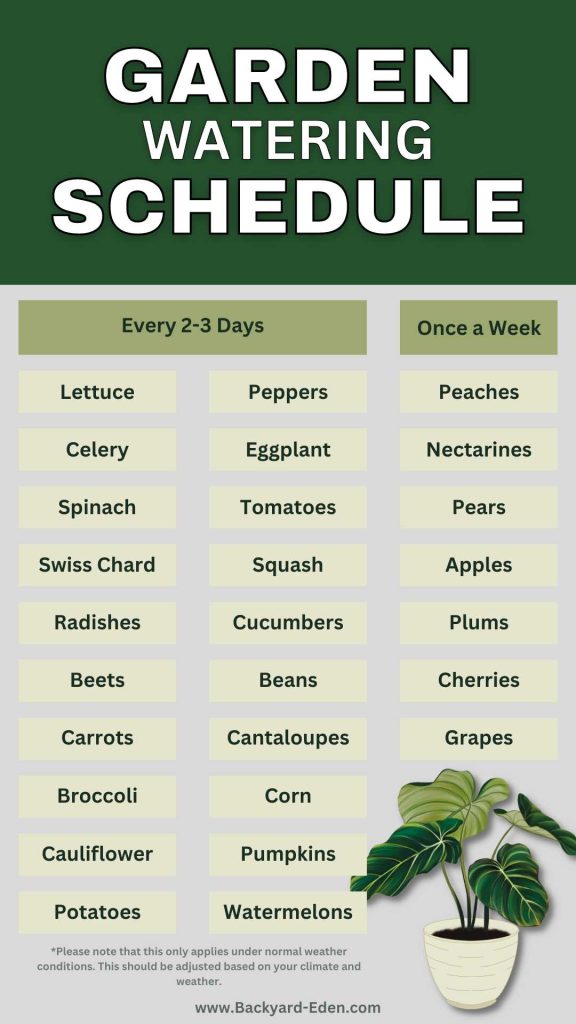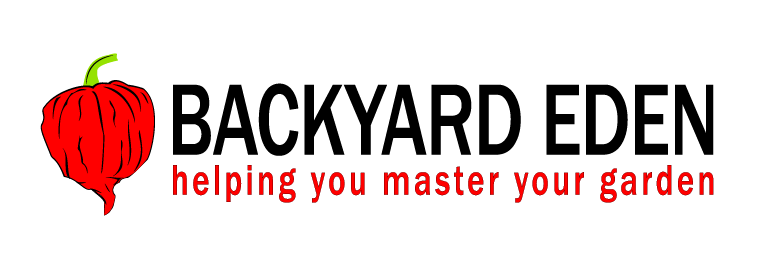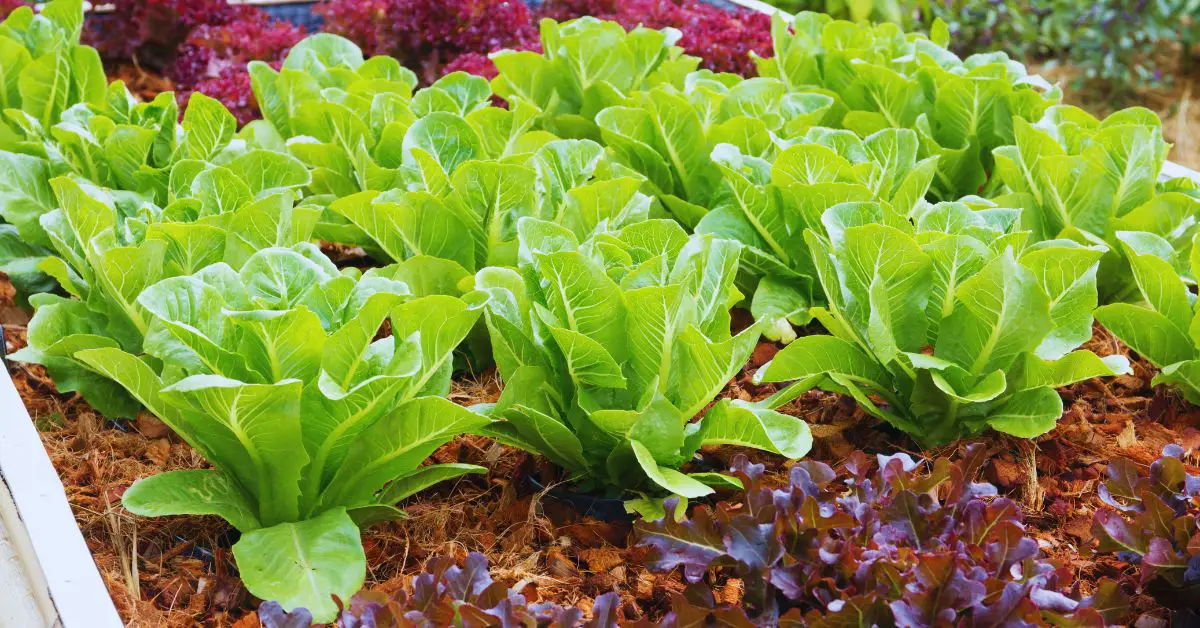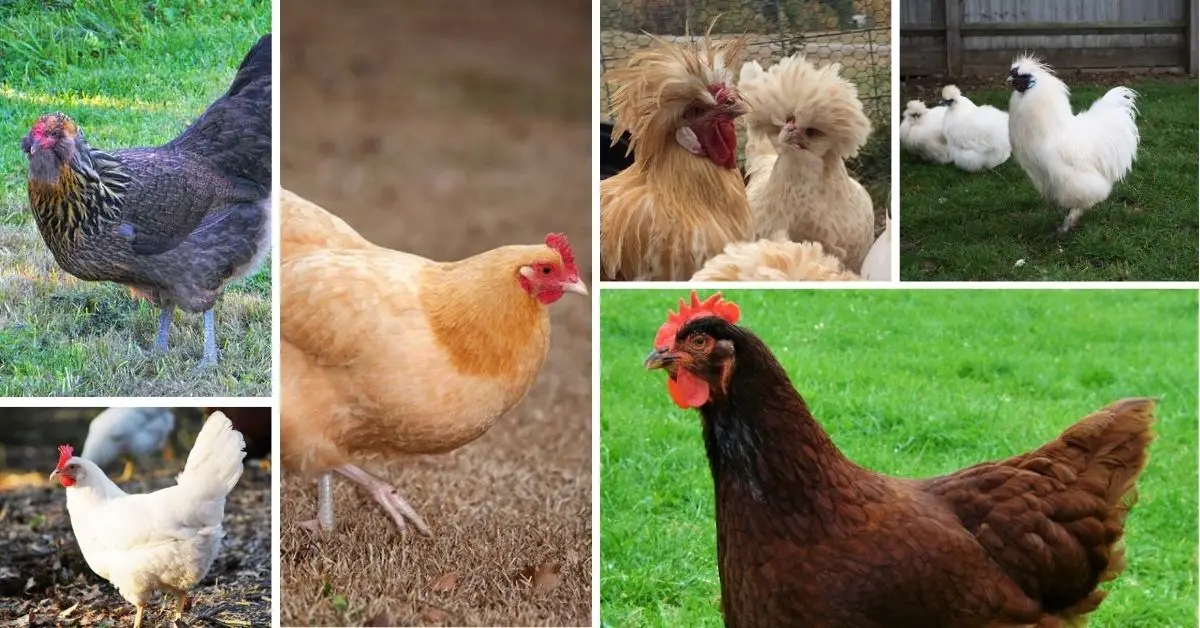How Often Should I Water My Vegetable Garden? How often you water your vegetable garden will depend on a few things such as what type of garden you have, how much direct sunlight your garden gets, your climate, and the types of plants you are growing.
In an area that gets normal weather conditions (without extreme heat) the general rule is to water your vegetable garden once or twice a week. This should be a deep watering where you slowly water your plants root zones with drip irrigation or a slow dripping hose at the base of the plant.
If you are in an area that gets extreme temperatures you will have to adjust this to fit your individual needs.
As a vegetable gardener, you know that there’s nothing quite like harvesting your own vegetables and knowing exactly where they come from. But one of the biggest challenges is making sure your vegetables get the right amount of water.
Did you know that an estimated 35% of gardeners over-water their plants? This can lead to root rot, wilting, and even plant death.
In this article, we’ll explore how often you should be watering your vegetable garden so you can get the best possible harvest.
How Often Should I Water My Vegetable Garden?
Watering your vegetable garden is essential for healthy growth and a bumper crop. But when it comes to how often you should be watering your plants, it depends on several factors such as the type of vegetable, soil consistency, temperature, and humidity levels.
We’ll discuss all these factors so that you can make sure your garden is getting just the right amount of water!
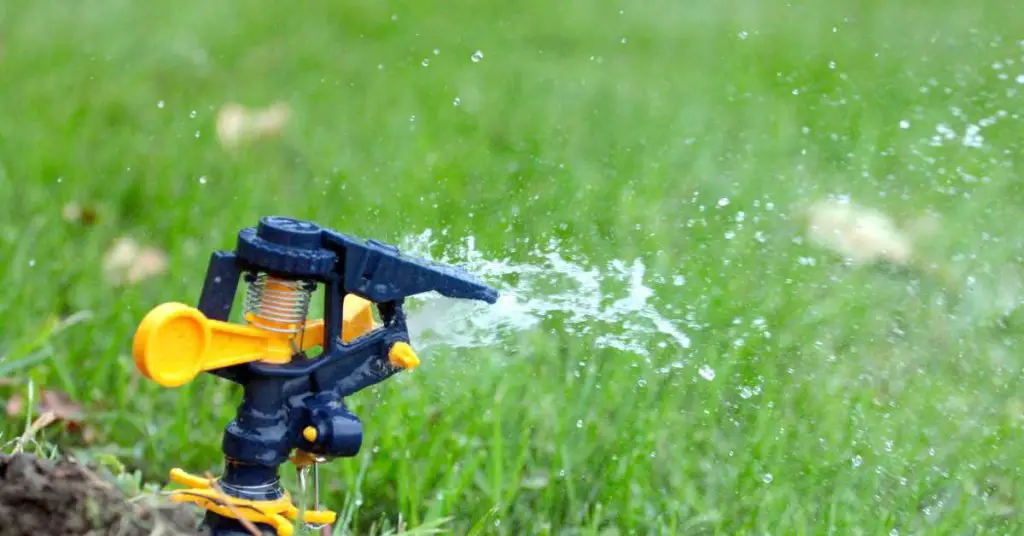
What Type Of Garden Do You Have?
Hi there! Understanding the type of garden you have is essential when determining how often you should water it.
If you have an inground vegetable garden, the amount of watering will depend on several factors. The quality of your soil is a major factor, as well as the weather conditions and what kind of mulching methods are used.
For container gardening, water needs to be monitored more closely since it’s easier for the soil to dry out quickly. You can also use rainwater harvesting systems and fertilizer to help sustain your plants in a container garden.
It’s important to remember that every plant has different water requirements and some may need more attention than others. Generally speaking, vegetables require 1-2 inches of water per week and if there is a lack of rain during summer months, manual watering may be necessary.
I suggest checking your plants daily for signs like wilting or drooping leaves so that you can provide them with adequate hydration when needed.
If possible, try using organic methods for providing water such as mulching or composting to help retain moisture in the soil. These techniques involve adding organic matter such as sawdust or bark chips around your plants which helps keep the soil damp longer and reduces evaporation from wind and sun exposure – this helps save time spent on watering!
How Is Your Garden Situated?
I have a vegetable garden that gets full sun in the morning.
It is situated in an area with good soil quality, and the soil type is mostly loam with some clay present.
The depth of the soil is just right for root vegetables to grow and the condition of the garden is excellent so far; it has been well taken care of with plenty of organic matter added to keep it healthy.
The soil nutrition level is also good, as I have been adding compost regularly to ensure that my vegetables receive all the essential nutrients they need to thrive.
All of these things play a part in determining how often you should water your vegetable garden.
What Is Your Weather And Climate Like?
My garden’s climate is a lot like a roller coaster. It starts off mild and sunny (for like a week or two) in the spring, then gets hot and even hotter in the summer before winding down with cooler temperatures in the November. The wind patterns can also be unpredictable at times.
If you haven’t figured it out yet, I live in the South. Texas to be precise. We have 3 seasons. Hot, hot, and whoa its hot. But, all kidding aside these things make a difference when planning a watering schedule.
To ensure my vegetable garden receives the right amount of water, I need to consider factors like:
- Soil types
- Wind patterns
- Soil preparation
All of these elements play an important role in water conservation. By preparing the soil correctly before planting and taking into consideration the plant placement, I can make sure my vegetables are getting just enough water.
Additionally, mulching and using drip systems can help conserve even more water while keeping it away from evaporation or run-off. With careful planning and maintenance, I can make sure my vegetable garden stays healthy and thriving all season long.
What Is The Best Way To Water A Vegetable Garden?
I live in a semiarid climate, which means I need to pay extra attention to my watering methods and water conservation.
The quality of the water is one factor that needs to be taken into consideration when it comes to a vegetable garden.
Rainwater is ideal for watering because it is naturally soft and doesn’t contain chlorine or other elements that can damage plants.
Additionally, the type of soil can also affect how much water a garden needs.
Sandy soils dry out faster than clay soils, so they require more frequent watering.
Lastly, using a mulching technique can help conserve moisture in the soil and reduce the amount of times your garden needs watering.
Mulch acts as an insulator around the plants and helps keep moisture in the ground longer by blocking evaporation and runoff.
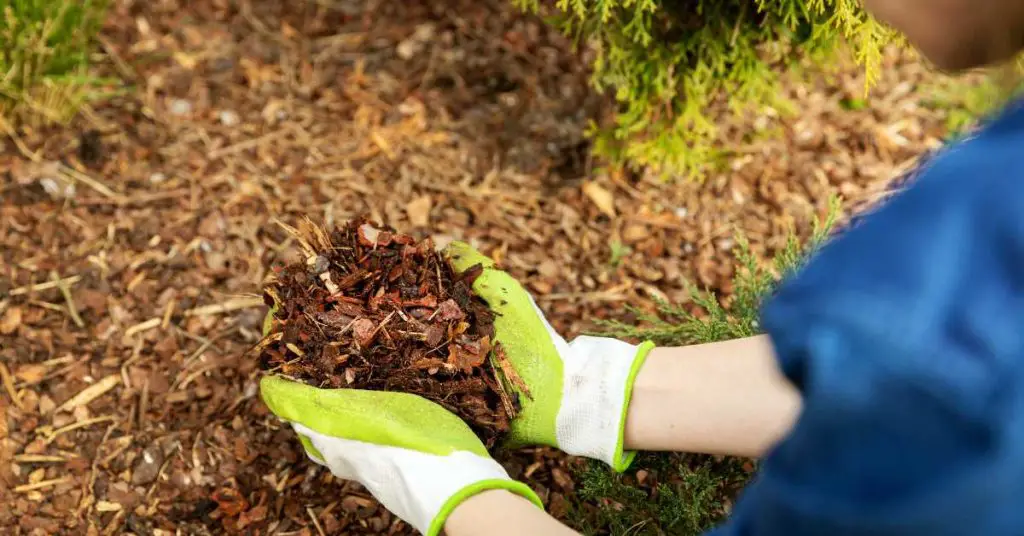
What Is The Best Time Of Day To Water A Vegetable Garden?
I’ve heard it all before – water your vegetable garden in the early morning or at dusk. But why? I mean, surely any time of day can work right? Wrong! The timing of your irrigation strategies is more important than you think.
Don’t be fooled by my sarcasm though; when it comes to watering your vegetable garden, there are a few key things to remember. Whether you’re growing tomatoes or carrots, understanding the soil quality, plant varieties and specific watering tips are essential for success.
Here’s a brief list of what you need to know:
- Timing Strategies: Watering in the early morning or just before dusk ensures that the water has enough time to soak into the ground without evaporating.
- Irrigation Techniques: Avoid using a sprinkler as it’s likely to cause runoff, instead use a hose with a nozzle that delivers a steady stream of water and aim for the base of each plant.
- Soil Quality: Healthy soil should have some moisture but not be soggy or overly dry. Check soil moisture levels weekly and adjust your watering accordingly.
- Watering Tips: Aim for 1 inch of water per week (for established plants) in order to promote deep root growth and discourage weeds from sprouting up.
- Plant Varieties: Different plants require different amounts of water; research each type beforehand so you know how much and how often they need to be watered.
So there you have it – if you want an amazing vegetable garden don’t just rely on luck; invest in timing strategies, irrigation techniques, soil quality, and even plant varieties – your vegetables will thank you!
What Fruits And Vegetables Should Be Watered Everyday?
When it comes to watering my vegetable garden, I need to consider a few factors.
Firstly, the type of soil in my garden will affect how often I should water it. Sandy soils require more frequent watering than clay soils, as they don’t hold moisture for very long.
Secondly, the quality of my water supply is important; rainwater is usually preferable to tap water, which may contain chemicals or minerals that could be harmful to plants. Thirdly, humidity levels and pest control are also important considerations when deciding how often to water my vegetable garden.
| Factors | Considerations |
|---|---|
| Soil Type | How much moisture does the soil hold? |
| Water Quality | Is tap or rainwater preferred? |
| Humidity Levels | Does the area have high or low humidity? |
| Pest Control | Is there a risk of pests invading the garden? |
| Container Gardens | Do containers need daily watering? |
I also need to take into account that certain types of fruits and vegetables require different amounts of water.
For example, leafy greens tend to need a lot of water during their growth period while root vegetables like carrots can do with less frequent watering.
Tomatoes and peppers require more frequent irrigation than other vegetables but this can depend on their location and the environment they’re in.
Container gardens also require more regular watering because pots dry out faster than other types of gardens due to a lack of air circulation around them.
It’s important for me to pay attention to all these factors when deciding how often I should water my vegetable garden in order for it to thrive and produce healthy fruit and vegetables that are safe for consumption.
With careful monitoring and regular maintenance, I can ensure that my vegetable garden will stay healthy throughout the growing season and beyond!
What Fruits And Vegetables Should Be Water Once A Week?
I water my vegetable garden once a week, depending on the weather and soil conditions. This schedule helps to ensure that my plants are receiving enough moisture without over-watering them.
Preparing the soil properly before planting is key to successful watering. I use drip irrigation or rain collection systems to conserve water and mulching techniques to help the soil retain moisture longer.
When setting up my vegetable garden, I consider factors like evaporation, temperature, and humidity. This allows me to create an efficient watering system so that I don’t have to adjust it frequently throughout the growing season.
I check the soil every few days for dryness as a guide for when it needs more water. Watering too much can lead to soggy soil and root rot in some vegetables, so I make sure not to overwater them by sticking to a consistent schedule for my garden.
With proper planning and maintenance, I can keep my vegetables healthy and hydrated throughout the growing season with minimal effort.
Should I Water My Vegetable Garden Every Day When It’s Hot?
As we all know, plants need water to survive. But when it comes to watering a vegetable garden, the frequency may vary.
While some plant types require more frequent watering than others, there are a few key factors that determine the ideal watering frequency for your garden.
First and foremost is the soil moisture. If you have an established garden with a good network of roots and mulch, then the soil will hold moisture better and your plants will be able to go longer between waterings.
The second factor is your local rain pattern; if you’re in an area with high rainfall, you can get away with less frequent watering than if you’re in an area with low rainfall.
Finally, the layout of your garden plays a role as well; plants in full sun need more frequent watering than those in partial shade or full shade.
When it’s hot out, it’s important to pay attention to the needs of your plants and adjust your watering schedule accordingly.
You may even consider setting up an irrigation system or using mulch or other materials on top of the soil to help keep it moist for longer periods of time during dry spells.
Above all else, take note of how your plants are doing and use that as a guide for determining how often they should be watered!
Can You Overwater A Vegetable Garden?
I often wonder if I’m watering my vegetable garden too much. After all, overwatering can be just as bad as not watering enough!
To help me manage the amount of water my plants receive, I look out for certain symptoms that could indicate overwatering. These symptoms include wilted and yellowing leaves, water-soaked stems, root rot, and a lack of beneficial bacteria in the soil.
I also pay close attention to the moisture levels in the soil. When it’s time to water my garden, I make sure that the soil is dry at least an inch below the surface before adding more water. If there is standing water or poor drainage in my garden beds, this could be a sign that I’m overwatering.
In order to ensure that my vegetables get just the right amount of water each week, I practice good water management techniques and monitor for any signs of overwatering. This helps ensure that my plants have access to all of the nutrients they need to grow healthy and strong!
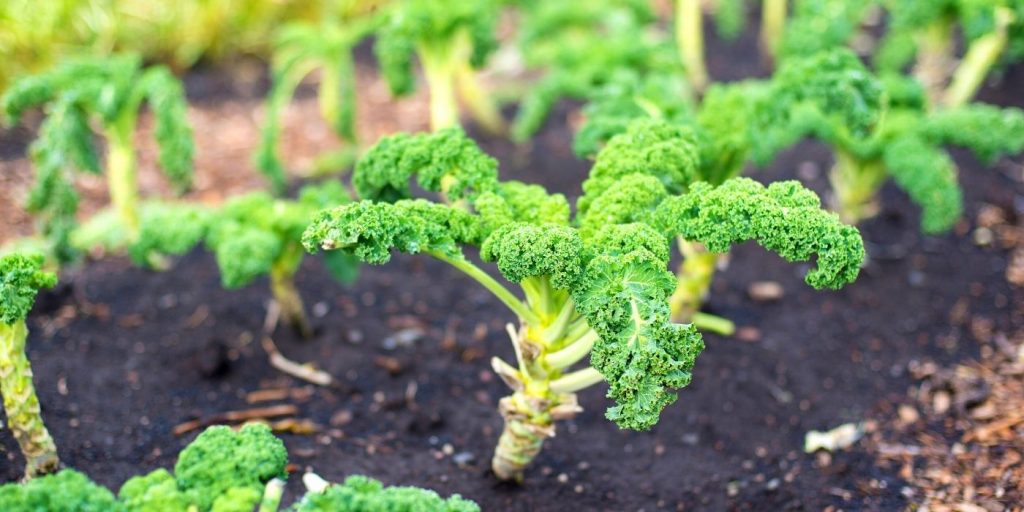
How Do I Know If I’m Watering My Vegetables Too Much?
It’s a common misconception that you should water your vegetable garden every day. While it’s true that vegetables need plenty of water to stay healthy, too much can lead to root rot and over-saturation of the soil.
To ensure your vegetables get enough water without being over-watered, here are four things to consider:
- Watering Frequency: Depending on the type of vegetables you have planted and the weather, you may only need to water your garden once or twice a week.
- Soil Moisture: Check the soil moisture with your fingers before watering; if it feels damp or wet, there is no need to add more water.
- Soil Type: Different types of soil retain moisture differently, so consider what type of soil you have in order to determine how often you should be watering your garden.
- Water Source/Rain Cycles: If there has been recent rainfall, this will help provide enough moisture for your vegetable garden. Be sure to check the forecast and adjust your watering schedule accordingly.
In summary, it is important to monitor both the weather and soil conditions in order to determine how often you should be watering your vegetable garden. In addition to considering the frequency, soil moisture, type of soil, and rain cycles when determining an appropriate watering schedule for your vegetable garden will help ensure all plants receive adequate hydration without being overwatered.
Frequently Asked Questions
How Deep Should I Water My Vegetable Garden?
When it comes to watering your vegetable garden, how deep you should water depends on a few factors.
Firstly, you need to consider the type of soil in your garden. Different types of soil absorb water at different rates and levels, so it’s important to do some soil testing before deciding how deep to water your plants.
Secondly, if you have an irrigation system in place then this can help you determine the right amount of water for each plant or bed. Some systems even allow you to adjust the frequency and amount of water that is applied to each part of the garden.
Finally, you should also take pest control into account when deciding how deeply to water your vegetables – some pests thrive in overly wet gardens, so make sure not to overwater!
Should I Use A Garden Hose Or A Watering Can To Water My Vegetables?
When it comes to watering your vegetable garden, there is no one-size-fits-all answer. It really depends on your garden location, soil quality, and pest control.
If you have an irrigation system in place, this can be a great way to maintain the correct watering frequency.
Otherwise, you can use either a garden hose or watering can. The decision really depends on whether or not you have access to a water source and how much time you want to spend manually watering your vegetables.
Should I Use Mulch To Help Retain Moisture In My Vegetable Garden?
Using mulch in a vegetable garden can be hugely beneficial for the soil, helping to retain moisture and allowing rainwater harvesting.
It also helps with soil aeration, which improves the soil’s temperature, as well as its pH levels.
Mulch is especially useful if you’re container gardening too, since it helps to keep in more of the water that would otherwise evaporate quickly.
All in all, incorporating mulch into your vegetable garden is a great way to help ensure your plants get enough water without having to resort to regular watering.
What Fertilizer Should I Use To Ensure My Vegetables Get Enough Nutrients?
When it comes to fertilizer for your vegetable garden, it’s important to consider soil preparation and composting methods.
You’ll also want to test the soil pH levels to make sure they’re suitable for growing vegetables.
Additionally, be sure to look into irrigation systems, since it’s important to water your veggies consistently.
Lastly, if you want an organic option, there are a few fertilizers that can help ensure your plants get enough nutrients.
How Often Should I Fertilize My Vegetable Garden?
Fertilizing your vegetable garden is just as important as watering it, and you should aim to do it about once a month.
The frequency of fertilizer applications may vary based on soil conditions, the composting methods you’re using, and any soil amendments or pest control products that you’ve added.
It’s important to check your soil pH regularly so you can determine if additional fertilization is needed.
Doing some research on the types of vegetables you’re growing can also be helpful in determining when and how much fertilizer is needed.
Conclusion
Watering your vegetable garden is an important part of keeping it productive. You should water plants deeply, using a garden hose or watering can, and mulch to help retain moisture.
Make sure you use fertilizer to give plants the nutrients they need and fertilize them every two weeks.
It’s important to remember that vegetables need around 1-2 inches of water per week. This can vary depending on the type of vegetables and climate, but aim to provide enough water for healthy growth.
Surprisingly, one in four Americans have a vegetable garden, so you’re in good company! With consistent watering and care, you can reap the rewards of growing your own fresh produce all season long.
